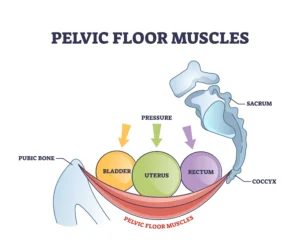Breaking the stigma: How common is pelvic organ prolapse?
 Do you worry about urine leakage when you cough or laugh? Do you feel pressure in your vagina? Are you dealing with constipation or bowel issues? If so, these symptoms may indicate a common problem for women: pelvic organ prolapse, also known as vaginal prolapse. Although many women face pelvic floor disorders, the shame surrounding these issues often means they suffer in silence. In our San Antonio women’s clinic, we open the lines of communication and offer life-changing treatment to our patients.
Do you worry about urine leakage when you cough or laugh? Do you feel pressure in your vagina? Are you dealing with constipation or bowel issues? If so, these symptoms may indicate a common problem for women: pelvic organ prolapse, also known as vaginal prolapse. Although many women face pelvic floor disorders, the shame surrounding these issues often means they suffer in silence. In our San Antonio women’s clinic, we open the lines of communication and offer life-changing treatment to our patients.
What is pelvic organ prolapse?
Similar to an abdominal hernia, pelvic organ prolapse creates bulging or protrusion in the reproductive tract. Women may develop vaginal prolapse because the pelvic support structures have weakened over time. As the support declines, the organs continue to drop and may eventually bulge out of the vaginal opening.
How common is vaginal prolapse?
Because some women feel that the topic is embarrassing, they often don’t discuss pelvic organ prolapse. Conservative estimates, however, suggest that 1 in 4 women in their 40s may experience some type of pelvic floor disorder. That number jumps to 1 in 3 for women in their 60s, and more than 50% for women in their 80s.
What you need to know about pelvic floor disorders
One of the main goals at our San Antonio women’s clinic is to demystify the shame surrounding vaginal prolapse and other pelvic floor disorders. We can accurately diagnose and treat these issues, so that you can live the full, happy life you deserve.
Consider these kernels of wisdom.
- Childbirth can make you more prone to pelvic organ prolapse, but aging, hormones, excessive weight gain and certain surgical procedures can also contribute to pelvic floor disorders.
- Simple pelvic floor exercises, such as Kegels, can help strengthen weakened muscles.
- Working with our pelvic floor therapist may dramatically improve your symptoms.
At Legacy Women’s Health, we don’t want our patients to suffer in silence because of vaginal prolapse. Our San Antonio women’s clinic doctors can help restore your health and wellbeing. Contact our office to learn more about pelvic floor disorders or to schedule an appointment.
